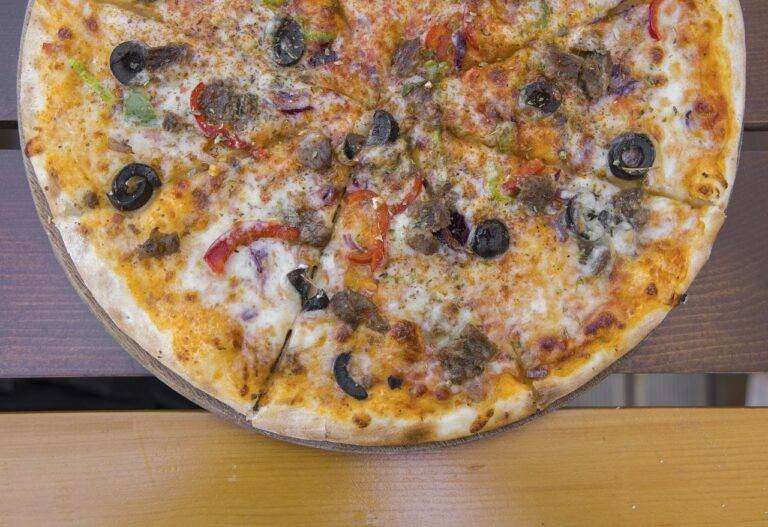The Role of Frozen Foods in Addressing Food Accessibility: 11xplay, India 24 bet login registration, Skyiplay
11xplay, india 24 bet login registration, skyiplay: The Role of Frozen Foods in Addressing Food Accessibility
When it comes to addressing food accessibility, many factors come into play, such as affordability, availability, and convenience. One solution that has been gaining traction in recent years is the use of frozen foods. Frozen foods have been a staple in many households for decades, but their importance in addressing food accessibility cannot be understated.
In this blog post, we will explore the role of frozen foods in addressing food accessibility and the benefits they bring to individuals and communities.
The Convenience Factor
One of the main advantages of frozen foods is their convenience. Frozen foods are readily available in most grocery stores and can be stored for long periods without going bad. This makes them a great option for individuals who may not have the time or resources to shop for fresh ingredients regularly.
Additionally, frozen foods are often pre-cut and pre-cooked, making meal preparation quick and easy. This convenience factor is particularly important for individuals with busy schedules or limited cooking skills.
Affordability
Another key benefit of frozen foods is their affordability. In many cases, frozen foods are more cost-effective than fresh produce and meats. This makes them a viable option for individuals and families on a tight budget.
Furthermore, frozen foods can help reduce food waste. Fresh produce and meats have a limited shelf life and can spoil quickly if not consumed. By opting for frozen foods, individuals can buy in bulk and store items for longer periods, reducing the likelihood of waste.
Nutritional Value
Contrary to popular belief, frozen foods can be just as nutritious as fresh foods. Frozen fruits and vegetables are often picked at their peak ripeness and flash-frozen to preserve their nutrients. This means that individuals can still enjoy the health benefits of produce even when fresh options are not readily available.
Additionally, frozen foods can be a great way to incorporate a variety of foods into one’s diet. Many frozen meals and entrees contain a mix of ingredients, providing a balanced meal in one convenient package.
Accessibility for All
One of the most significant advantages of frozen foods is their accessibility for individuals of all backgrounds. Frozen foods are available in a wide range of options, including vegetarian, vegan, gluten-free, and dairy-free choices. This ensures that individuals with dietary restrictions or preferences can still find suitable options to meet their needs.
Frozen foods also play a crucial role in addressing food deserts, areas where access to fresh, healthy foods is limited. By providing a range of frozen food options in grocery stores and markets, individuals in food deserts can still access nutritious meals without having to travel long distances.
Supporting Local Communities
Many frozen food manufacturers source their ingredients from local farmers and producers. By supporting these companies, individuals can also indirectly support their local communities. This creates a positive impact on the economy and promotes sustainability in food production.
In conclusion, frozen foods play a vital role in addressing food accessibility by providing convenience, affordability, nutritional value, and accessibility for individuals of all backgrounds. By incorporating frozen foods into one’s diet, individuals can enjoy a wide range of benefits while supporting their local communities.
FAQs
1. Are frozen foods as healthy as fresh foods?
Yes, frozen foods can be just as healthy as fresh foods. Many frozen fruits and vegetables are picked at their peak ripeness and flash-frozen to preserve their nutrients.
2. Do frozen foods contain preservatives?
Some frozen foods may contain preservatives to maintain their quality and shelf life. However, there are many options available that are preservative-free.
3. Can frozen foods help reduce food waste?
Yes, frozen foods can help reduce food waste by allowing individuals to buy in bulk and store items for longer periods without spoilage.
4. Are there options for individuals with dietary restrictions?
Yes, there are many frozen food options available for individuals with dietary restrictions, including vegetarian, vegan, gluten-free, and dairy-free choices.
5. How can frozen foods address food deserts?
Frozen foods provide a convenient and accessible option for individuals in food deserts to access nutritious meals without having to travel long distances.
6. Can frozen foods support local communities?
Yes, many frozen food manufacturers source their ingredients from local farmers and producers, supporting the local economy and promoting sustainability in food production.







